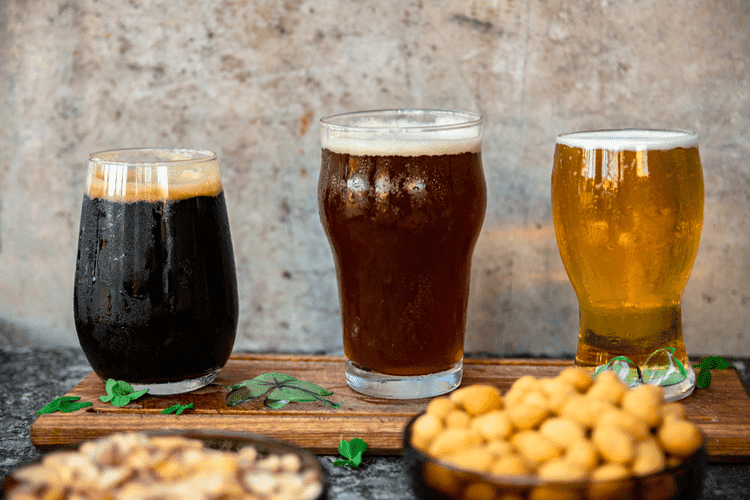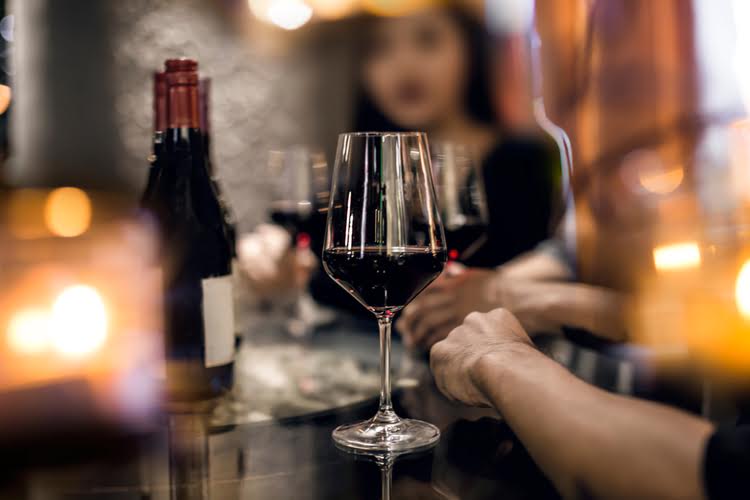What Happens to Your Body When You Don’t Drink Alcohol for a Month?
30/01/2025 20:18
These medications aren’t for everyone but could help lessen severe DT symptoms, such as hallucinations and aggression. If you’re given this type of medication, you’ll need to be closely monitored. In Psychology from the University of Wisconsin-Madison where she was part of a psycho-social research lab.
Stoptober 2024: Here’s what giving up alcohol actually does to your body
It’s essential to stay hydrated during this time, as dehydration can exacerbate these symptoms. The main management for severe symptoms is long-acting benzodiazepines — typically IV diazepam or IV lorazepam. “Again, depends on what the baseline alcohol consumption is,” she said. Alcohol is metabolized by the liver and an enzyme called dehydrogenase. However, when you drink in excess, the enzyme gets saturated and is metabolized by a different enzyme.
During the 12- to 24-hour time frame after the last drink, most people will begin to have noticeable symptoms. These may still be mild, or the existing symptoms might increase in severity. When that person cuts out alcohol, there is a period when their brain hasn’t yet received the message and still overproduces the stimulating chemicals. With alcohol out of the equation, though, these chemicals cause withdrawal symptoms. On the other hand, binge drinking is generally defined as four drinks for women and five drinks for men within a two-hour period.
Why do we experience alcohol withdrawal?
But once you fall into slumber, it can wake you up repeatedly in the night. Plus, it disrupts the important REM stage of sleep and may interfere with your breathing. Try https://laviemdca.com/does-drinking-too-much-make-you-bruise-heres-what-7/ skipping alcohol, especially in the late afternoon and evening, for more restful shut-eye. A glass of regular beer has about 150 calories, and a serving of wine has about 120. On top of those mostly empty calories, alcohol ramps up your appetite. It also makes you more impulsive, and less able to resist the fries and other temptations on the menu.

000 steps, 8 hours sleep: Here’s what science actually says about recommended health targets
Research shows that drinking large amounts of alcohol before bedtime leads to decreased sleep onset and disrupted, poor quality sleep later in the night. However, if you’re banking on a month-long break from alcohol to help you lose weight, Kumar said it’s not your best bet. While alcohol is high in calories, and wine, beer, and mixed drinks add sugar to one’s diet, Kumar said that simply cutting it out may not always help you lose weight. One of the best things about giving up alcohol is that you may find yourself feeling happier overall. This is because alcohol can cause depression, anxiety, and other mental health problems. “Furthermore, consistent use of alcohol to induce sleep only increases the need to use alcohol in the future to get to sleep,” he explains.
- If the damage isn’t too great, though, a month-long break can allow your liver to recover.
- While everyone’s timeline is different, many people start to feel the benefits of sobriety more fully with two weeks down.
- Years of sobriety bring about remarkable changes to your overall health and well-being.
Acute alcohol withdrawal symptoms can range from mild to severe, and the severe symptoms can be dangerous or even life-threatening. That’s why that initial physician consultation is so important, and with Monument, you can see a physician using your existing health insurance. Prices for visits are completely transparent and you’ll be told upfront what the cost will be based on your specific insurance.
But sometimes uncomfortable symptoms stick around for months or years. These serious mental and physical symptoms usually show up 2 to 4 hours after your last drink. Symptoms often peak during this period as the nervous system continues adjusting. Physical symptoms may include pronounced tremors, increased sweating, elevated heart rate, and higher blood pressure. Studies have shown that after three-weeks of abstinence from alcohol, patients saw a complete recovery of gut barrier function in subjects who suffered from alcohol addiction and leaky gut.
I hate seeing my patients’ serious complaints and requests be dismissed because they’re cast as the drunk. In the short term, alcohol is processed through your liver in about an hour. Essentially, feeling “drunk” is when your liver becomes too overwhelmed to properly process alcohol, so it overflows temporarily into your bloodstream. This is what causes you to feel light-headed or tipsy after multiple alcoholic drinks. For moderate drinkers, damage to your liver could be fully reversed by six months. If you are a daily drinker you may feel a bit worse to start what happens if i stop drinking alcohol with while your body adjusts to not having alcohol in its system all the time.
Providers who advertise with us must be verified by our Research Team and we clearly heroin addiction mark their status as advertisers. Therapy offers a safe space to explore the underlying reasons behind alcohol use and helps address the emotional struggles that often accompany recovery. Whether through 1-on-1 therapy sessions or group counseling, these services provide tools for managing cravings, coping with stress, and developing healthier thought patterns.
- My patients are aged 18 and over and typically belong to higher socio-economic groups; around half of them have private medical plans, while the others are self-paid.
- If you’re thinking of quitting drinking, particularly if your alcohol use is high, Dr. Mieses Malchuk recommends talking to your GP.
- Ironically, some of the first things you might notice are similar to what happens to your body when you’re drinking.
- Doctors will monitor your symptoms and risk for alcohol withdrawal complications.
- Your sleep, he says, will be restored gradually during the first four weeks, but after that you’ll sleep more deeply and wake up more rested.
- These effects will subside as your body adjusts to the absence of alcohol.
If you fall into the category of heavy drinker (as so many of us do), then your first week may go a bit differently. Some people don’t experience any of that for the first week or two and jump straight to the pink cloud, before getting hit with cravings. If you experience any severe symptoms, seek medical attention immediately.

Your Sex Life Might Improve
Our brains don’t like this artificial imbalance and will try to overcompensate by decreasing the amount of GABA and increasing the production of glutamate. It’s important to be honest about your alcohol use — and any other substance use — so your provider can give you the best care. For those with alcohol misuse and dependence, the conditions are connected to chronic sleep disturbance, lower slow-wave sleep, and more rapid eye movement. Dasgupta said the best people to avoid alcohol always are those under 21 years old, and not just for legal reasons. Data from 2013 published in the American Journal of Public Healthestimated that about 3.5% of cancer deaths in the United States were alcohol-related.
Week three to four: Better skin, reduced anxiety, improved mood
Both the World Health Organization (WHO) and the Canadian Centre on Substance Use and Addiction have determined that there is not safe amount of alcohol. One of the financial benefits of giving up alcohol is that you’ll likely have more money to spend. This is because alcohol is a costly habit, so giving it up can free up some extra cash.










